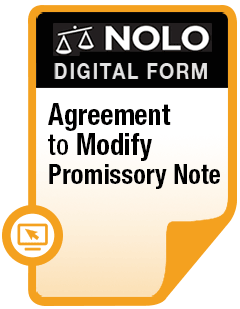If you own your life insurance policy, it could be subject to estate and gift taxes. Learn when these taxes apply and how to avoid them.
You've probably started reading this article because you're wondering about the taxability of life insurance proceeds (the amount the insurance company pays at death). But you should know that it doesn't apply to you unless you're one of the relatively few who have an estate that's likely to owe federal estate taxes at their death. (Only a few states have estate and inheritance taxes—which you can learn more about on our estate and inheritance taxes page.)
In 2025, the federal estate tax affects only:
- unmarried people who die leaving a taxable estate of more than $13.99 million, and
- legally married couples leaving a taxable estate of more than $27.98 million.
If you might meet either of those criteria, read on. If you don't but you still have questions about estate taxes, see our Estate and Gift Tax FAQ.
When Are Life Insurance Proceeds Part of the Taxable Estate?
Let's assume your estate will owe federal estate taxes. Whether life insurance proceeds are included in the taxable estate depends on who owns the policy when the insured person dies. If the deceased person owned the policy, the full amount of the proceeds is included in the federal taxable estate. With some exceptions covered below, if someone else owned the policy, the proceeds aren't included.
Avoiding Taxes for Your Life Insurance Policy
If you want your life insurance proceeds to avoid the federal estate tax, you might want to transfer ownership of your life insurance policy to another person or entity. There are two ways to do it. You can transfer ownership of your policy to any other adult, including the policy beneficiary. Or, you can create an irrevocable life insurance trust, and transfer ownership to it. (But be aware that some group policies, which many people participate in through work, don't allow you to transfer ownership at all.)
Method 1: Transferring Ownership to Other People
Transferring ownership of your policy to another person involves a trade-off: Once the policy is transferred, you've lost all your power over it, forever. You cannot cancel the transfer or change the beneficiary.
Suppose, for example, you transfer ownership of your policy to your spouse and later get divorced. You cannot cancel the policy or recover it from your ex-spouse once you've transferred it. In other situations, however, transferring policy ownership works well—for example, when you transfer it to an adult child with whom you have a close and loving relationship.
But, even if you're confident in your choice to receive ownership of your life insurance policy, there are limitations you should be aware of.
IRS Rules on Life Insurance Transfers
The IRS has rules that determine who owns a life insurance policy for tax purposes when the insured person dies.
Transfers within three years of death. Gifts of life insurance policies made within three years of death are disallowed for federal estate tax purposes—and often for state estate tax purposes, too. In other words, if you pass away within three years of transferring your life insurance policy to someone, the full amount of the proceeds is included in your estate as if you had remained the owner of the policy. The message here is clear: If you want to give away a life insurance policy to reduce estate taxes, give the policy away as soon as is feasible.
"Incidents of ownership." Another IRS rule says that a deceased person who kept any "incidents of ownership" of a transferred life insurance policy is still considered the owner. The term "incidents of ownership" is simply legalese for significant power over the transferred insurance policy.
Specifically, the proceeds of the policy will be included in your taxable estate if you have the legal right to:
- change or name beneficiaries of the policy
- borrow against the policy, pledge any cash reserve it has, or cash it in
- surrender, convert, or cancel the policy, or
- select a payment option—that is, decide if payments to the beneficiary will be in a lump sum or in installments.
The above circumstances aren't the complete list. Long story short, any action by the deceased person that shows significant control over the policy could be considered an incident of ownership.
Gift Tax When Transferring Life Insurance
If you give a permanent life insurance policy to another person, including a beneficiary, the IRS regards the transaction as a gift. That means that, depending on the policy's worth, the transfer could be taxed. (Because term life insurance policies don't have a cash value, transferring one won't trigger a gift tax—but it could trigger an estate tax as discussed above.)
Keep in mind that the amount of gift tax will be far less than the amount of estate tax that would be due if your policy remained in your name and in your estate. The policy proceeds are always considerably more than the value of the policy while the insured is alive.
Under 2025 gift tax rules, if you transfer a policy with a fair market value of more than $19,000 to another person, gift taxes will be assessed. However, the gift tax won't have to be paid until your death and will have to be paid only if your estate exceeds the federal gift and estate tax exemption ($13.99 million—$27.98 million for married couples—for deaths in 2025).
The fair market value isn't necessarily the same as the cash value. To find out the present fair market value of an insurance policy for gift tax purposes, ask your insurance company.
How to Transfer a Life Insurance Policy to Someone
You can give away ownership of your life insurance policy by signing a simple document, called an "assignment" or a "transfer." But, before you do that, you should consider consulting an attorney to understand the implications and your options. (An attorney can also help you with the transfer process.)
To make the transfer, notify the insurance company and use its form. There's normally no charge to make the change. You also should ask the insurance company if there are additional steps to complete the transfer.
After you transfer the policy, the new owner should make the premium payments. If you make payments, the IRS might contend that you're keeping an "incident of ownership" (as discussed above) and include the proceeds in your federally taxable estate—precisely what you're trying to avoid. If the new owner can't make the payments, you can give them money for them.
If you give a paid-for, single-premium policy to a new owner, there are no future payments to worry about. Because it's paid for in full once it's purchased, single-premium life can be a particularly convenient type of policy to give away. However, if the fair market value of the policy at the time of the gift is more than the amount that is exempt from gift tax ($19,000 in 2025), the IRS will assess a gift tax on the excess amount.
Method 2: Life Insurance Trusts
The second way to transfer a life insurance policy is to create an irrevocable life insurance trust and then put the policy in it. Once you transfer ownership of life insurance to the trust, you're no longer the owner, and the proceeds won't be part of your estate. However, there might be potential gift tax implications when you pay premiums for a policy that's transferred to a life insurance trust.
Why create a life insurance trust rather than simply transfer a life insurance policy to someone else? One reason—in addition to the limitations covered above—can be that there's no one you want to give your policy to. In other words, you want to get the proceeds out of your taxable estate, but you want to exert legal control over the policy. You want to avoid the risks of having an insurance policy on your life owned by someone else—perhaps a spouse or child you don't trust to pay policy premiums.
If you use a trust, the trust could specify that the policy must be kept in effect while you live, which also eliminates the risk that a new owner of the policy could decide to cash it in.
If you use a trust and don't want the proceeds from your life insurance policy to be subject to estate taxes, you must comply with the following strict requirements:
- The life insurance trust must be irrevocable. If you have the right to revoke it, you will be considered the owner of the policy, and the proceeds will be subject to federal estate taxes.
- You cannot be the trustee.
- You must establish the trust at least three years before your death. If the trust hasn't existed for at least three years when you die, it's disregarded for estate tax purposes, and the policy proceeds are included in your taxable estate.
For More Information
Transferring ownership of life insurance raises complex tax issues, and creating a life insurance trust is complicated. A life insurance trust is a great tool for avoiding estate taxes, but there could be gift tax implications on the life insurance premiums you pay. If you want to explore using a life insurance trust or transferring ownership, you'll want to see a lawyer.
To learn more about tax planning for your estate, read Plan Your Estate, by Dennis Clifford.
Talk to a Lawyer
Need a lawyer? Start here.
How it Works
- Briefly tell us about your case
- Provide your contact information
- Choose attorneys to contact you
- Briefly tell us about your case
- Provide your contact information
- Choose attorneys to contact you



